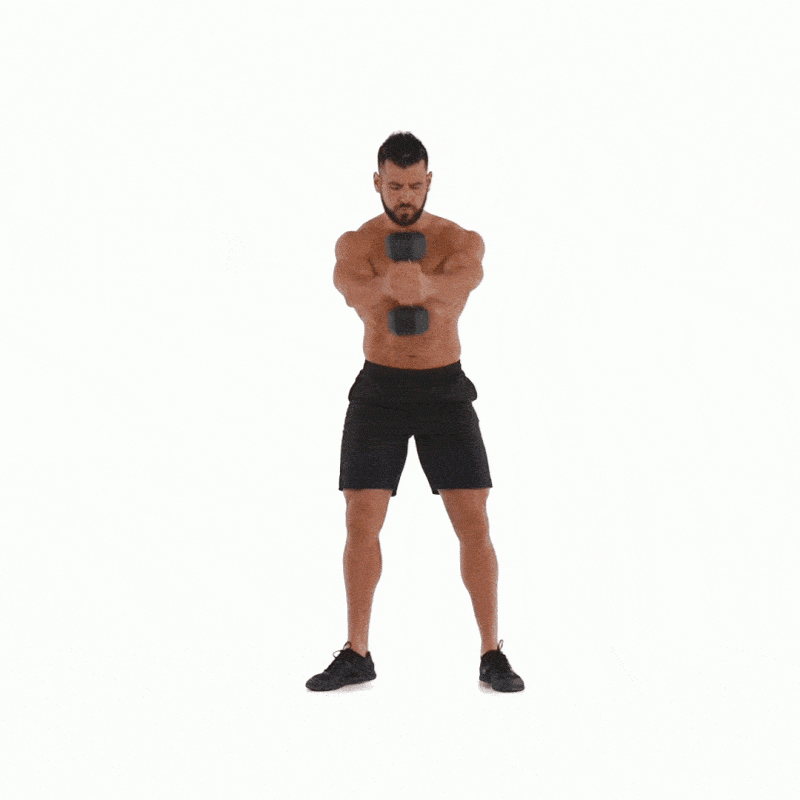Biohacking – could strength training boost your brain power?
Could strength training boost your brain power? David Wiener, Training and Nutrition Specialist at AI-based fitness app Freeletics tells us everything you need to know about strength training for biohacking

Could strength training boost your brain power? David Wiener, Training and Nutrition Specialist at AI-based fitness app Freeletics tells us everything you need to know about strength training for biohacking
Put simply, brain biohacking means making small, additive lifestyle changes to enhance your overall mental health and long-term cognitive function and abilities.
In recent years, biohacking has grown in popularity, with one major way to enhance mental performance being exercise and particularly strength training.
Just as we can work out our biceps, we can also strengthen the brain to become stronger and more flexible.
Research shows that 70 to 150 minutes of weekly physical activity, such as strength training, can help prevent cognitive decline and improve the mental condition of subjects with mild cognitive impairment.
While this is still being explored, one possible hypothesis is that exercise promotes a protein in our brain called Brain-Derived Neurotrophic Factor or BDNF.
Just like fertilizer for the mind, BDNF is involved in promoting new brain cells, forging new pathways, and reducing inflammatory markers. This way, strength training builds bone density, protects against diseases, and corrects postural imbalances.
Going one step deeper, this training style also helps to improve mood, boost mind-body connection, form a healthy body image, and lower stress and anxiety, making it an all-around way to look and feel strong.
Although it is especially important as you age, strength training is for everyone. The earlier you start, the more you’ll be able to benefit from it in terms of absolute strength, bone health, coordination, muscle function, and more.
#1 Squats
Squats are a great way to improve strength and stability. They work several muscle groups, from your calves and quadriceps to your abdominals and your glutes.
But recent research suggests that squats are one of the best exercises around for improving brain function and that just three to five minutes of squats, three times a week can be even better for your brain than 30 minutes of steady-state exercise, like a run or a walk.
This is largely thought to be because of blood flow to the brain. As you squat, you move your head up and down against gravity. Your blood vessels attempt to buffer changes in blood pressure and act like shock absorbers for the brain and it is believed to be this unique type of blood flow which is responsible for the brain boosting benefits.
#2 Planks
The plank has a particular effect on our nerves, making them an excellent means of improving overall mood. It is thought they do this by stretching out muscle groups that contribute to stress and tension in the body.
Mental stresses and tension also put physical stress on the muscles and nerves. The good news is that planks not only calm your brain, but they can also treat anxiety and symptoms of depression– but only if you make them part of your daily routine.
#3 Jumping Jacks
Combining bodyweight training with cardiovascular exercise, Jumping Jacks are usually used as a warm-up exercise, but they are packed with brain boosting power and ability.
They get your blood pumping hard and fast and simultaneously improve blood supply to the brain. This, in turn, gives your brain an energy boost which keeps it functioning without wearing out.
This kind of activity for just ten minutes can boost your brain power and focus. They’re also simple to perform and require little space and no equipment.
#4 Strength Training
Using weights like dumbbells, kettlebells and barbells combined with vigorous resistance exercises that involve severe contractions has been shown to greatly improve memory and reasoning in people, particularly those that have mild cognitive impairment.
A combination of weight and resistance training exercises can increase brain power in people over the age of 50 with systematic studies showing a highly positive impact on brain capacity, alertness, attention, and memory.
What's Your Reaction?



























































































